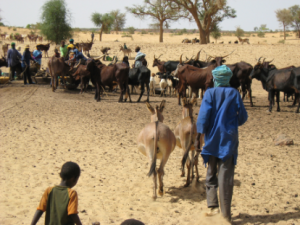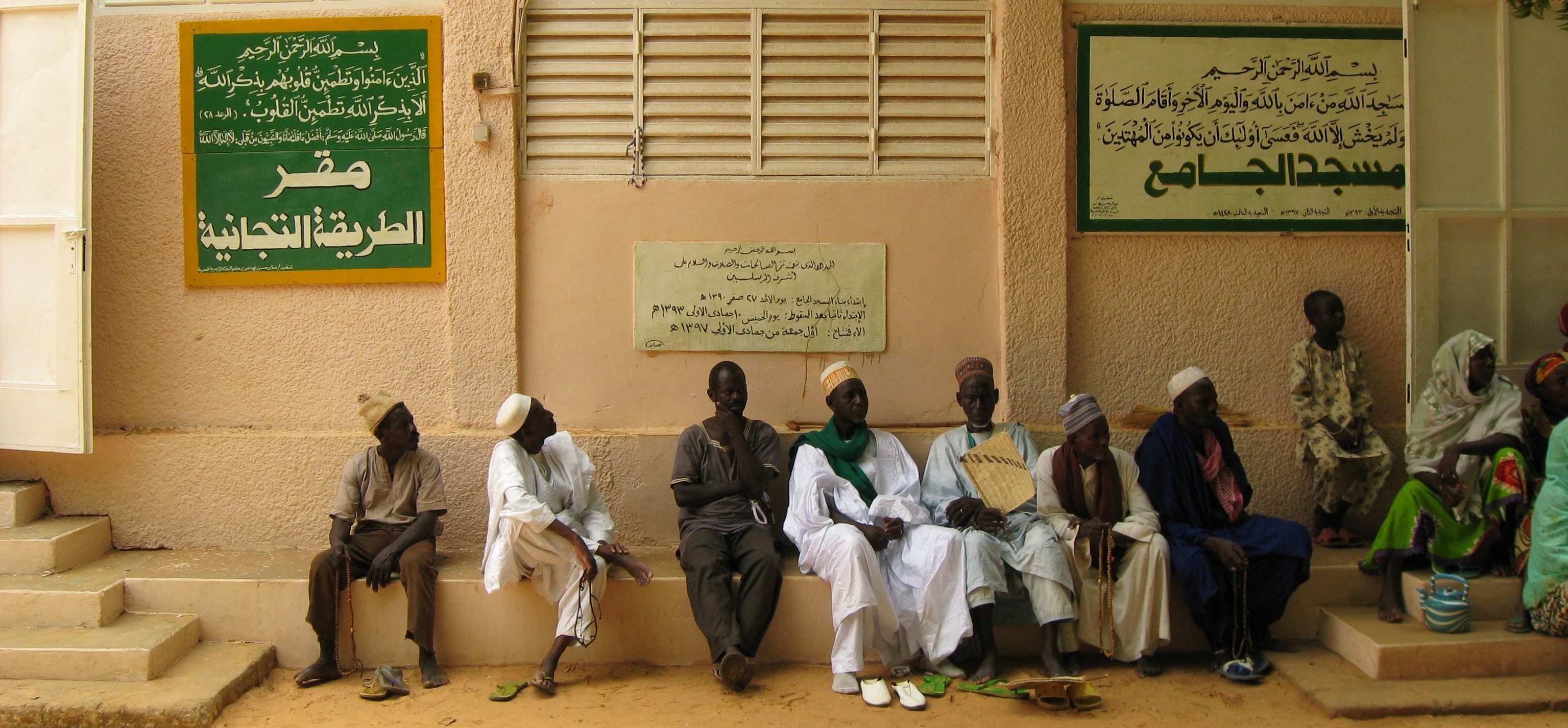Villalón is a specialist on contemporary African politics, with a particular focus on Sahelian countries of West Africa: Mauritania, Senegal, Mali, Burkina Faso, Niger and Chad. He has carried out research in the region on Islam and politics, democratization, and religion and educational reform. He is also more broadly interested in social change, institutional reform, electoral dynamics, and political stability across the six countries of the Francophone Sahel.
Villalón is currently the Principle Investigator (along with co-PIs Sarah McKune and Renata Serra) on a $1.6 million Minerva Research Initiative grant to study the impact of climate change in West Africa, and to understand and explain the variations in responses.
- Social & Institutional Determinants of Vulnerability & Resilience to Climate Hazards in the Sahel
Leonardo A. Villalón, Sarah McKune, Renata Serra, Gregory Kiker, Steven Radil

This project examines the variations in responses to the effects of climate change in the Sahel region. We seek to better understand how the hazards, risks—and at times the opportunities—of climate change are perceived and understood by social actors at a variety of scales. The research team of this project is intentionally designed to bring together an interdisciplinary group of scholars affiliated with the Sahel Research Group. Read More…
- Student Activism and Religious Movements in Sahelian Universities
Leonardo Villalón
 University student movements represent a particularly important aspect of the religious dynamism that characterizes the contemporary Sahel. Religiously-based movements, largely but not exclusively Muslim, are now central features of student life across the region. These have overshadowed what remained of the older leftist student movements of the first post-independence decades, as well as the corporatist student unions focused on demands for increased material benefits that proliferated in the years of structural adjustment programs. Read More…
University student movements represent a particularly important aspect of the religious dynamism that characterizes the contemporary Sahel. Religiously-based movements, largely but not exclusively Muslim, are now central features of student life across the region. These have overshadowed what remained of the older leftist student movements of the first post-independence decades, as well as the corporatist student unions focused on demands for increased material benefits that proliferated in the years of structural adjustment programs. Read More…
- Debating Laïcité in the Sahel: What Future for Secularism?
Leonardo Villalón
 Debates about secularism, and particularly the strong French version known as laïcité, have long been central features of political and social life in the Muslim majority countries of the West African Sahel. Shifting religious and political dynamics in the region have given these debates a new urgency, and reframed them in various ways. With support from Minerva initiative funding, The Sahel Research Group (SRG) of the University of Florida (UF) has launched a collaborative and comparative research project to explore this issue in the region.
Debates about secularism, and particularly the strong French version known as laïcité, have long been central features of political and social life in the Muslim majority countries of the West African Sahel. Shifting religious and political dynamics in the region have given these debates a new urgency, and reframed them in various ways. With support from Minerva initiative funding, The Sahel Research Group (SRG) of the University of Florida (UF) has launched a collaborative and comparative research project to explore this issue in the region.
- Institutional Reform, Social Change, and Stability in Sahelian Africa
Regional events in recent years have raised significant concerns about the stability of the countries of the Sahel, and raised significant questions about the capacity of states in the region to manage rising pressures emanating from multiple sources. This major research project by the Sahel Research Group, funded by a generous grant from the Minerva Initiative, comparatively examines the institutional capacity of Sahelian states to manage the multitude of pressures confronting them, and hence to maintain stability and ensure social order. Read More…
- Religion and the Politics of Educational Reform in the Sahel
The Religion and Educational Reform research project examines the social, religious, political and institutional dimensions of parallel efforts at reforming religious education in three countries: Senegal, Mali and Niger. The project was carried out as one of seven research streams of the Africa Power and Politics Programme, an international research consortium headed by the Overseas Development Institute (London UK) and funded by the UK Department for International Development and the Consortium for Irish Aid (2007-12). Read More…
- The Trans-Saharan Elections Project,” (TSEP):
Made possible by a grant from the US Department of State’s Bureau of Educational and Cultural Affairs. The project brought together a network of specialists from each of the countries in a series of workshops and seminars, to discuss key aspects of the electoral systems and the democratic process in the six countries of the Sahel. As elsewhere in Africa, these countries had very limited experience with elections during the first three decades of independence (1960-90). Starting in the early 1990s, however, elections became central to political discussion and to the search for viable democratic institutions across the region. The TSEP website produced by this project provides information on key aspects of the electoral systems in each of the six countries.
- Negotiating Democracy in Muslim Contexts:
Political Liberalization and Religious Mobilization in the West African Sahel. This project, made possible by being named a Carnegie Scholar be the Carnegie Corporation of New York, was devoted to an examination of the varied discourses, debates and negotiations which characterized the effort to create and institutionalize democratic systems in Senegal, Mali and Niger in the 1990s and the 2000s. All three are overwhelmingly Muslim countries—approximately 90-95% in each case—but in each case with a history and tradition of secular state institutions inherited from their common French colonial legacy. Democratization in all three countries thus often centered on debates about how to reconcile those two facts on such issues as secularism (laïcité), educational systems, and family law.

